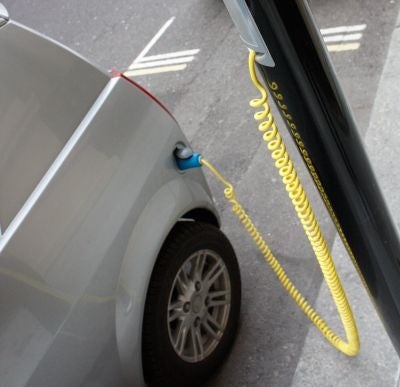It's been a busy month for electric vehicle charging in the US - but what's happening in Europe?
With all the hype coming from America about EV infrastructure and "market adoption," one could be forgiven for forgetting that a mass-produced electric family car hasn't actually gone on sale yet in the US.
Nonetheless, at the end of June, Governor Chris Gregoire of Washington state announced that her state was to host the first fully electrified highway in the United States, a 276 mile (444 km) stretch of the I-5 highway that links Oregon with Canada.
The chargers will be placed every 40-60 miles (64 - 96 km), well within the range of most electric vehicles, to provide a safety net to those traveling long distances in EVs.
In mid-July, California stole some of Washington's limelight by announcing that Highway 1, otherwise known as the Pacific Coast Highway, now has a network of charging stations to enable an all-electric journey between San Francisco and Los Angeles.
But while the US is charging ahead with its chargers on highways, Europe is looking a little behind.
London's mayor Boris Johnson has pledged to install a network of fast-charge points at key locations on the road and motorway network in the South East, although his target date for completion was 2015 - and electric vehicles arrive in the UK next year.
France plans 75,000 charging points nationally and French firm DBT Freshmile hopes to provide around a quarter of those at intervals of around 80 kilometers, although its initial strategy is to work with providers to create a set of "local" infrastructures before joining them.
Perhaps the brightest sign of long-range EV driving is in Denmark, one of six global territories selected by EV "network provider" Better Place, which doesn't charge a vehicle's battery, but switches it for a full one.
Better Place says that its technology takes less time than a stop at a gas station and far less than the three-hour stop required by many of the "fast" battery chargers.
The Association for Electric Vehicles in Europe says that governments should be focusing on charging near the home to facilitate uptake of vehicles, rather than pursuing long-trip charging networks which are very slow compared to a conventional gas stop.
However, the fear is that until networks of the type unveiled in America over the past few weeks exist, range anxiety will stop consumers from going electric at all.
Subscribe to Independent Premium to bookmark this article
Want to bookmark your favourite articles and stories to read or reference later? Start your Independent Premium subscription today.


Join our commenting forum
Join thought-provoking conversations, follow other Independent readers and see their replies